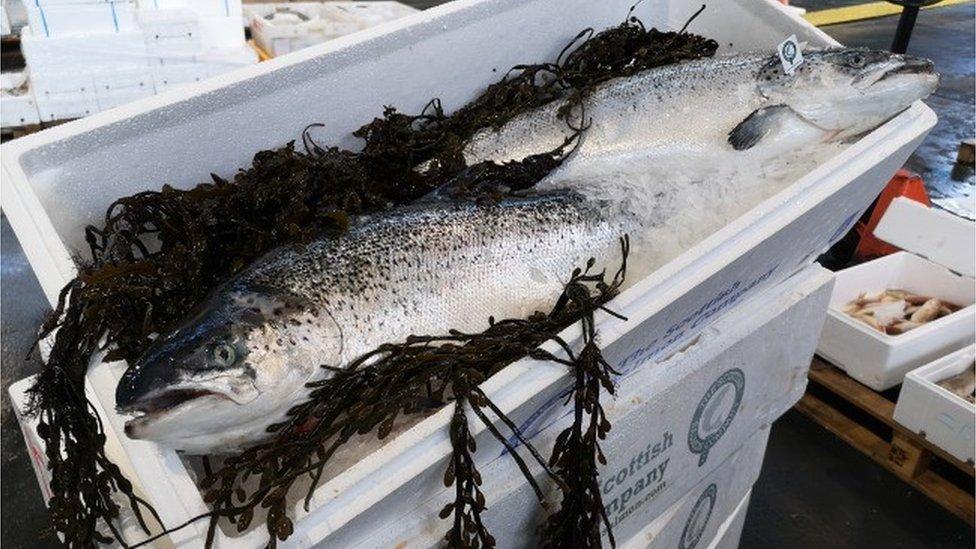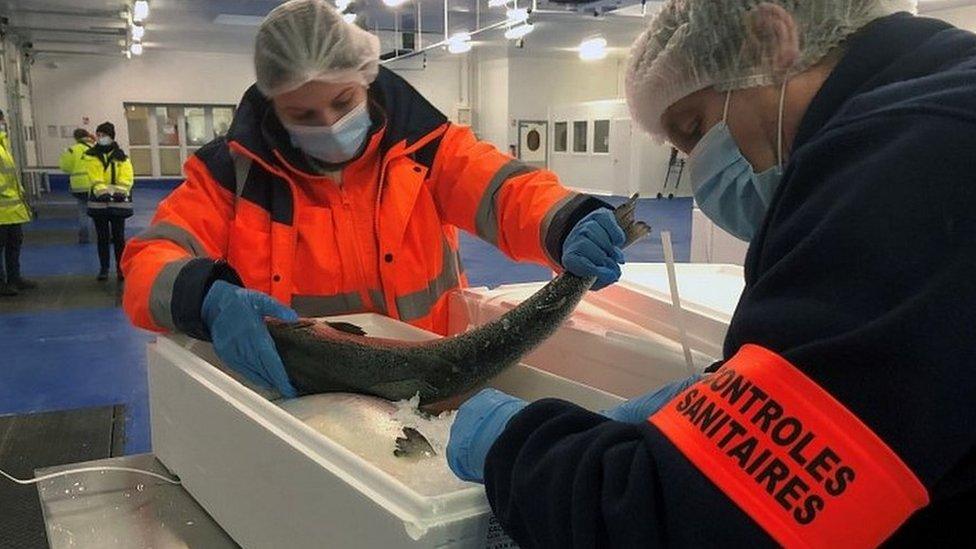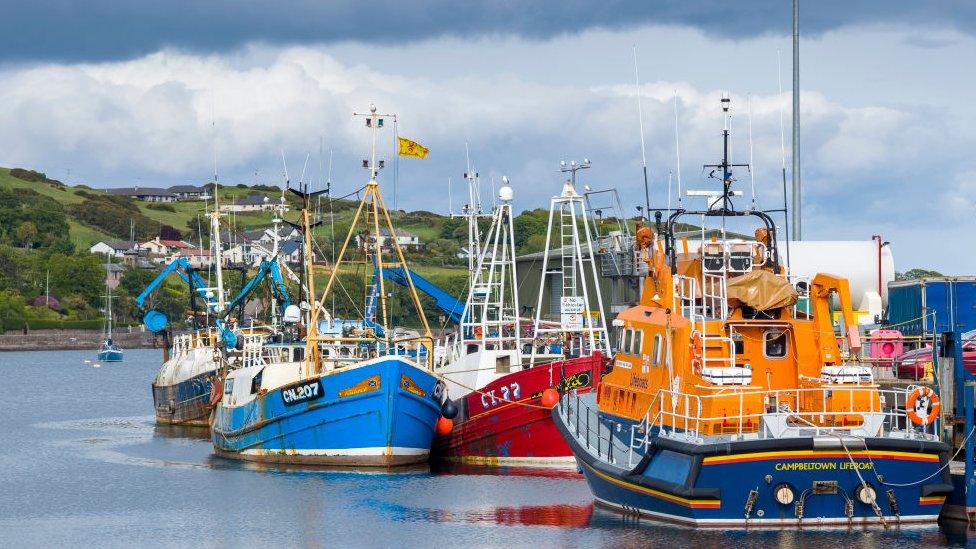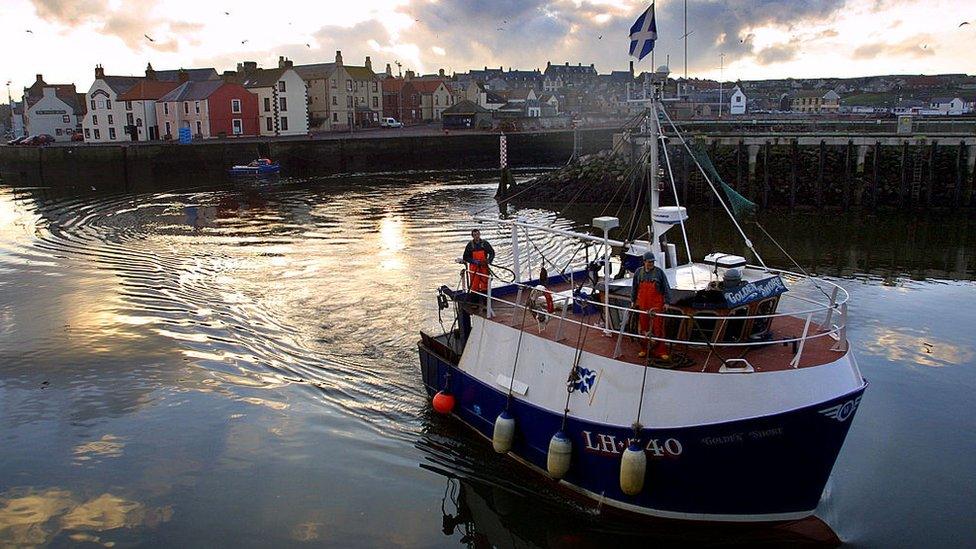Covid: Exports of Scottish salmon fall by 23%
- Published

Exports of Scottish salmon fell sharply last year after being hit by the Covid pandemic, according to new figures.
HMRC data published by the Scottish Salmon Producers Organisation (SSPO) showed they dropped by 23% to 72,155 tonnes.
Export sales of whole, fresh salmon were down by £168m, at £451m.
SSPO said the shutdown of food service outlets around the world and greatly restricted air transport hit distant markets the hardest.
Scottish salmon sales in China were down 76% by value and 42% lower by value in the US.
As sales dropped in the more distant markets, Scotland's salmon producers turned more to Europe.
Exports of Scottish salmon to the EU accounted for 69% of all global sales in volume (50,000 tonnes) and 64% in value (£288m), up from 56% and 52% in 2019 respectively.
'Bruising time'
SSPO chief executive Tavish Scott said the figures showed that last year had been "a bruising time" for the Scottish salmon sector.
He said: "Our producers have battled really hard to get salmon to their customers around the world, against really strong head winds.
"It is to their credit that they have managed to get so much salmon to their global customers and the switch to EU trade was a good way of offsetting the difficulties experienced elsewhere.
"But now that the UK has left the EU and the full implications of Brexit are clear, our members are suffering from the burden of excessive bureaucracy and red tape which is making it difficult for them to compete in the European market."

Seafood firms say customs red tape has had a serious impact on exports to the EU
Mr Scott's comments came as a new seafood taskforce met for the first time to discuss ongoing post-Brexit problems with exports to the EU.
It was set up after seafood firms reported severe disruption caused by new border controls introduced after the end of the UK's transition period.
The virtual meeting, which included industry representatives from the catching, processing and exporting sectors, was chaired by Scotland Office minister David Duguid.
Both Scottish Fisheries Secretary Fergus Ewing and his Westminster counterpart George Eustice also attended.
'Spirit of co-operation'
The UK government said discussions included the issue of the movement of mixed loads of small consignments, known as groupage, and the "variation in time taken for loads to be cleared".
Mr Duguid said after the meeting: "The spirit of co-operation between all parties was good to see and my officials will now drill down to identify areas for rapid action.
"The next taskforce meeting is in a fortnight but our engagement with industry continues on a daily basis, as does our work to speed world-class Scottish seafood from port to plate as smoothly as possible."
- Published7 February 2021

- Published4 February 2021

- Published2 February 2021
